In today’s rapidly evolving workplace, the ability to adapt, innovate, and learn continuously is more crucial than ever. Enter the concept of Experimentation in playful learning – a powerful approach that can transform how we develop skills, solve problems, and drive innovation in professional settings.
Experimentation, in the context of playful learning, goes beyond simple trial and error. It’s a mindset and a set of practices that encourage us to explore, take risks, and learn from both successes and failures in a low-stakes, engaging environment. By incorporating experimentation into our learning and development strategies, we can create more dynamic, effective, and enjoyable learning experiences that translate directly to improved performance and innovation in the workplace.
The Four Key Components of Experimentation
At its core, experimentation in playful learning rests on four key pillars:
- Embracing risk and failure: In traditional learning environments, failure is often seen as something to be avoided at all costs. However, in experimentation, we recognize that failure is not only inevitable but also valuable. By embracing the risk of failure, we open ourselves up to new possibilities and learnings that we might otherwise miss.
- Developing iterations and prototypes: Experimentation is an iterative process. It involves creating quick prototypes or mock-ups of ideas, testing them, and then refining based on the results. This approach allows for rapid learning and improvement, helping to evolve ideas more efficiently than traditional, linear development processes.
- Trying out different scenarios: Experimentation encourages us to explore multiple possibilities rather than fixating on a single solution. By playing out different scenarios, we can uncover unexpected insights and develop more robust, flexible solutions to complex problems.
- Letting go of perfectionism: The pursuit of perfection can often stifle creativity and slow down progress. Experimentation teaches us to value progress over perfection, encouraging us to put forth “good enough” versions that can be improved over time rather than waiting for the perfect solution.
How Experimentation Enhances Learning
Experimentation is not just a fun addition to learning; it fundamentally enhances the learning process in several ways:

- Promotes active engagement: By its very nature, experimentation requires hands-on involvement. This active engagement leads to deeper understanding and better retention of knowledge and skills.
- Fosters creativity and innovation: When we experiment, we give ourselves permission to think outside the box. This mindset is crucial for fostering creativity and driving innovation in the workplace.
- Builds resilience and adaptability: Through repeated cycles of trying, failing, and improving, we build resilience and adaptability – crucial skills in today’s fast-paced business environment.
- Encourages collaborative problem-solving: Many experiments benefit from diverse perspectives. This naturally encourages collaborative problem-solving, enhancing team dynamics and collective intelligence.
Creating a Culture of Experimentation
To truly harness the power of experimentation in professional development, organizations need to cultivate a culture that supports and encourages it by:
- Developing a “safe-to-fail” environment: Embrace psychological safety. Create an atmosphere where failure is seen as a learning opportunity rather than a setback. This encourages employees to take calculated risks and think about innovative solutions.
- Encouraging voluntary participation: Allow employees to choose their learning paths and experiments. This autonomy increases engagement and motivation.
- Promoting open communication: Foster an environment where ideas can be freely shared, and feedback is given constructively. This openness is crucial for the iterative nature of experimentation.
- Balancing structure with flexibility: While experimentation requires freedom, it also benefits from some structure. Strike a balance that provides guidance without stifling creativity.
Practical Strategies for Implementing Experimentation
Here are some concrete ways to incorporate experimentation into your professional development programs:
- Role-playing exercises: Use role-play to experiment with different approaches to challenging workplace scenarios.
- Rapid prototyping workshops: Organize workshops where teams quickly develop and test prototypes of new ideas or solutions.
- Scenario planning activities: Use scenario planning to experiment with different future possibilities and develop flexible strategies.
- Failure celebration rituals: Implement rituals that celebrate what Amy Edmondson calls “intelligent failures”1 as learning opportunities, such as “Failure of the Month” awards.
Overcoming Barriers to Experimentation
While the benefits of experimentation are clear, implementing it can face some challenges:
- Addressing fear of failure: Help employees understand that failure in experiments is not reflected in their performance evaluations.
- Managing time and resource constraints: Start with small-scale experiments that don’t require significant time or resources.
- Balancing experimentation with operational needs: Allocate specific time for experimentation so it doesn’t interfere with day-to-day operations.
- Measuring and communicating value: Develop metrics to track the impact of experimentation on learning outcomes and business results.
Conclusion
Experimentation in playful learning offers a powerful approach to professional development that aligns well with the needs of today’s dynamic workplace. By embracing risk, iterating on ideas, exploring multiple scenarios, and letting go of perfectionism, we can create learning experiences that are not only more effective but also more engaging and enjoyable.
As we move forward in an increasingly complex and rapidly changing business landscape, the ability to experiment, learn, and adapt quickly will become ever more crucial. By incorporating experimentation into our learning strategies now, we can build more resilient, innovative, and adaptable organizations ready to thrive in the future of work.
So, are you ready to play, prototype, and progress? The world of experimentation in learning awaits, full of possibilities for growth, innovation, and transformation.
- Edmondson, Amy. Right Kind of Wrong: The Science of Failing Well. New York, NY: Atria Books, 2023. ↩︎



